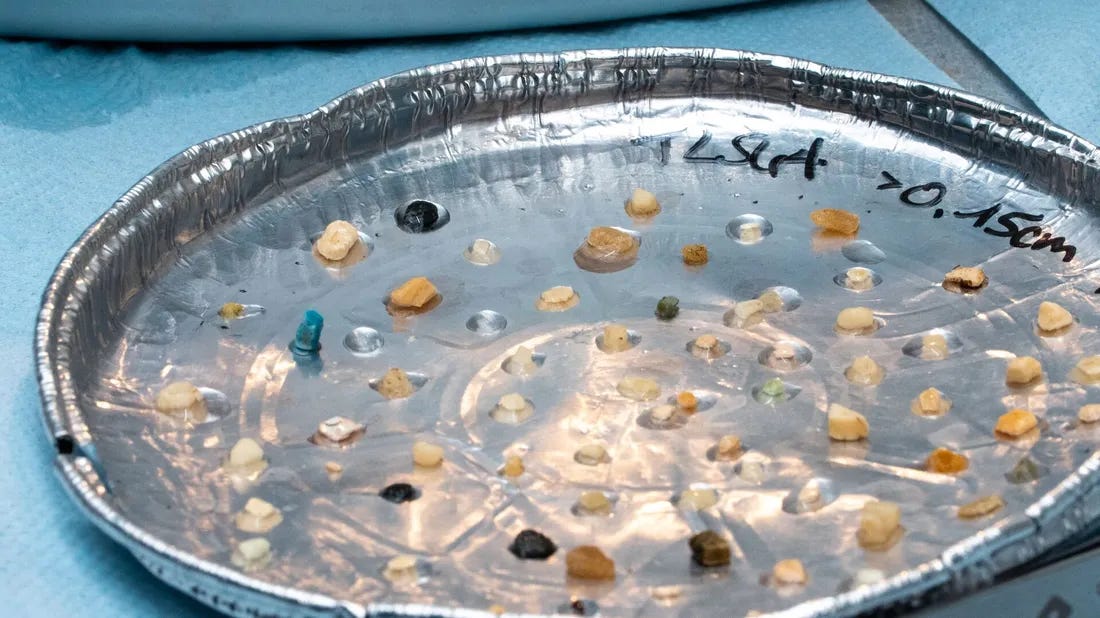200 petrochemical lobbyists attend negotiations for a global plastic treaty
and the fishing industry is the world's most dangerous sector to work in.
Dear Seaspirians,
Here are this month’s most important ocean news, but before that; thank you for reading The Seaspiracy Observer and for your continuous support in unveiling the truth about what’s really happening beyond our coastlines worldwide.
If a few more people choose to become paid subscribers, The Seaspiracy Observer could expose more lies, call out more fishy deals and support more ocean campaigns. So, if you can afford it, please support our work.
🗞️ THE LATEST IN OCEAN NEWS
⚠️ The fishing industry named the most dangerous occupation, with nearly 300 fatalities every day.
According to the latest World Risk Poll report, "Engineering safer workplaces: Global trends in occupational safety and health," only 27% of fishers have ever received safety training, making fishing one of the least-
trained industries regarding safety measures.
🧐 Over 200 petrochemical lobbyists have been at negotiations for a Global Plastics Treaty.
🌏 Japan and China block efforts to strengthen shark finning ban.
The International Commission for the Conservation of Atlantic Tunas (ICCAT) has adopted a management procedure for Atlantic swordfish, but another proposal to strengthen the commission’s ban on shark finning was derailed by Japan and China.
🧨 Persistent legacy microplastics are rising disproportionately faster than larger floating objects in the Great Pacific garbage patch.
Over 75% of plastic in great pacific garbage patch originates from fishing.
🇪🇸 Spanish fishing master convicted for breaching Irish territorial waters.
🇷🇺 Russian and Faroese Fishing Fleets Expand with New Vessels.
Faroe Islands-based salmon farming company Bakkafrost has awarded local manufacturer GroAqua a contract for the construction of a new salmon feed barge that will hold 1,100 tonnes of feed and will have 24 feed lines, allowing for the simultaneous feeding of 24 pens.
🇪🇺 EU fishing fleet achieves record profits despite marine destruction.
🌊 Scientists Discovered a New Bioluminescent Sea Slug in the Deep Ocean.
🦈 Sharks and manta rays are facing extinction in the Balearic Islands.
With over 60% of the 56 shark species in the Balearics classified as threatened. Of these, 17 are either critically endangered or extinct in the Balearic Sea, owing largely to overfishing.
🇲🇾 Malaysian Fisheries Department records 826 arrests involving local fishing boats
😍 TOP GOOD OCEAN NEWS
🇵🇷 Puerto Rico announces new marine protected area that will protect manatees.
🐟 Bycatch of nearly 20,000 protected Chinook salmon shuts down Alaska trawl fishery.
Chinook salmon are the most prized food for endangered southern resident orcas.
🇿🇼 Zimbabwe is commited to fight against illegal fishing in its waters.
🌊 Western Indian Ocean nations unite to protect vital coastal ecosystems.
The region’s governments have committed to the Nairobi Convention, a legally binding partnership framework for governments, civil society, and the private sector to take collaborative action.
Most coral reef restoration involves collecting coral fragments from wild reefs and transplanting them to degraded sites. That is called asexual fragmentation, and produces corals genetically identical to their parent.
This new method will ensure corals of greater genetic diversity, which will confer more resilience in the face of marine heatwaves and other threats.
🪸 The Earth's biggest coral colony has been discovered in the Pacific Ocean
Experts estimate that the massive mega coral – found near the Solomon Islands in the south-west Pacific Ocean – is about 300 years old.
Measuring 34 metres wide, 32 metres long and 5.5 metres high, with a circumference of 183 metres, this mega coral is the largest individual colony in the world.
🤯 Mindblowing marine wildlife fact we learnt this month: The sounds of a healthy reef attract double the amount of fish and coral.
Did you like this week’s issue? ⬇️










